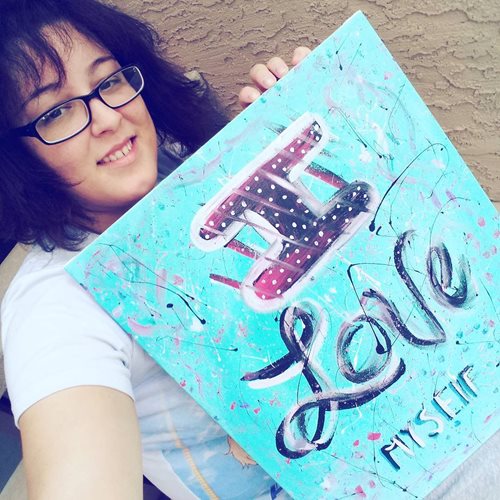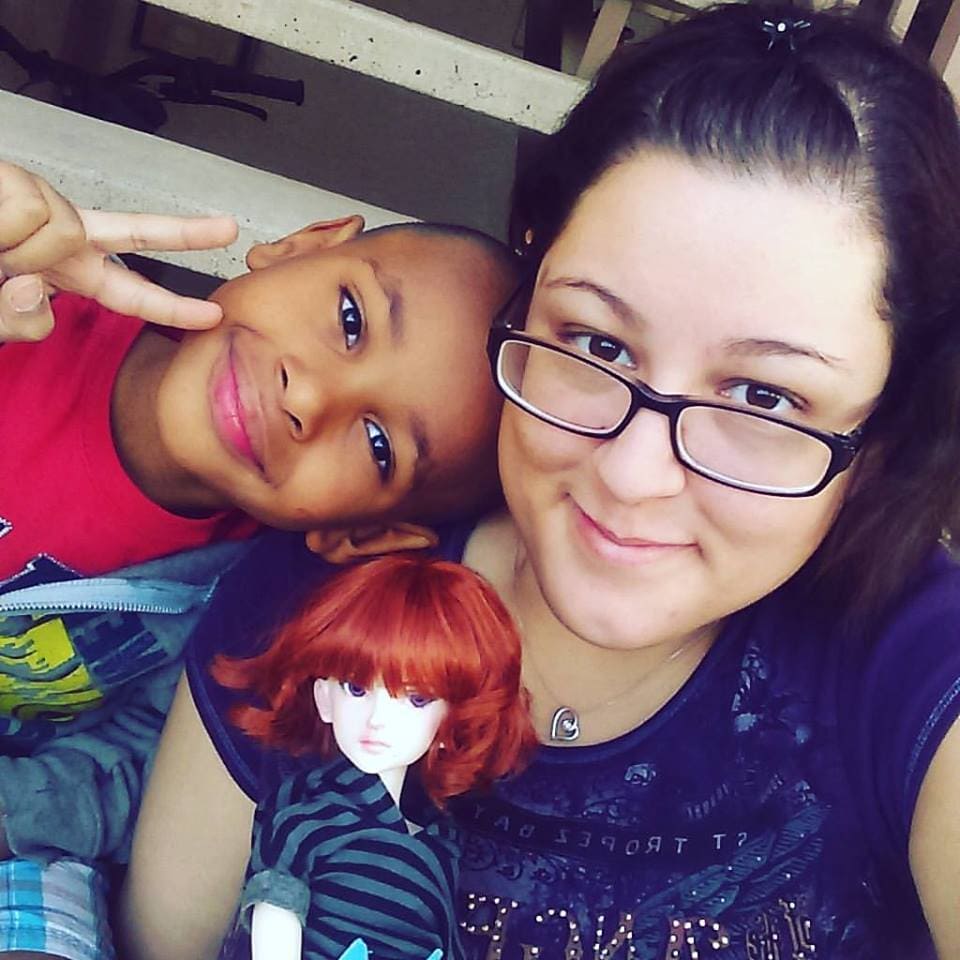
Pablo Picasso once said, “Painting is just another way of keeping a diary.” But for Crystal Littles, it’s more than that: Painting is how she shares her story of living with a mental health condition.
Crystal is a 32-year-old mental health advocate from Arizona who has bipolar disorder. Thanks to Medicaid, she was connected to Art Awakenings, an art therapy program in Arizona funded by the People Service Action Behavioral Health Agency. The program has allowed her to transform her experience with bipolar disorder into artistic beauty.
Crystal is one of the millions of Americans who gained access to mental health services since the Affordable Care Act (ACA) was passed in 2010. But the American Health Care Act, Congress’ bill to repeal and replace the ACA, would result in massive cuts to Medicaid. If the bill passes, Medicaid will cover 14 million fewer people and Medicaid spending will be reduced by 25% by 2026, per the nonpartisan Congressional Budget Office.
Without Medicaid, people like Crystal will be left uninsured. She went without mental health coverage for years because she made too much to qualify for Medicaid. Her only option was over-the-phone counseling covered by her husband’s insurance. But in February of 2016, she received what she calls the “magic phone call.”
“It was my insurance letting me know I now had access to Medicare and Medicaid,” she told me. “I was through the roof.” Through Medicaid, Crystal gained access to Integrated Care, a nearby clinic where she could receive same-day mental health and physical health care services. Providers at the clinic connected her with Art Awakenings, which has been central to her recovery. Medicaid also covered the cost of Peer Support Specialist training, so she could take her lived experience and help others get the care they need.
Crystal was also connected with NAMI, where she discovered her passion for mental health advocacy. NAMI support groups further inspired her to speak out about her condition. “I was staying inside isolating myself, and I was only on the computer,” Crystal explained. “I realized that slowly over time, the computer can help me get out of my situation as much as it can isolate, so I started writing tweets and showing people this is what mental health really looks like.”
Crystal says that without Medicaid, she probably would not be alive. Now, she is a certified Peer Support Specialist, a NAMI advocate, a talented art therapy participant and a loving mother of her adopted six-year-old son.

“I had someone to turn to, I had people in my corner,” she said. “[Without Medicaid] I probably wouldn’t have adopted my son. But I reached the level of wellness where I could have a family.”
Like Crystal, we all have a voice. We need to use our voices now in the fight to protect Medicaid. It is critical that we stand up and tell Congress what repealing the ACA would mean: the undoing of building blocks that comprise real Americans’ recovery—peer support, art therapy, advocacy and other supports that hold families together.
“Self-advocacy is worth it. The ACA is worth it,” Crystal said. “Because we are worth the investment.”
Tell your Representative to protect Medicaid funding for Americans with mental illness.

